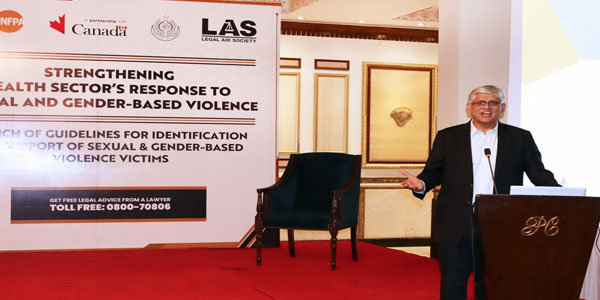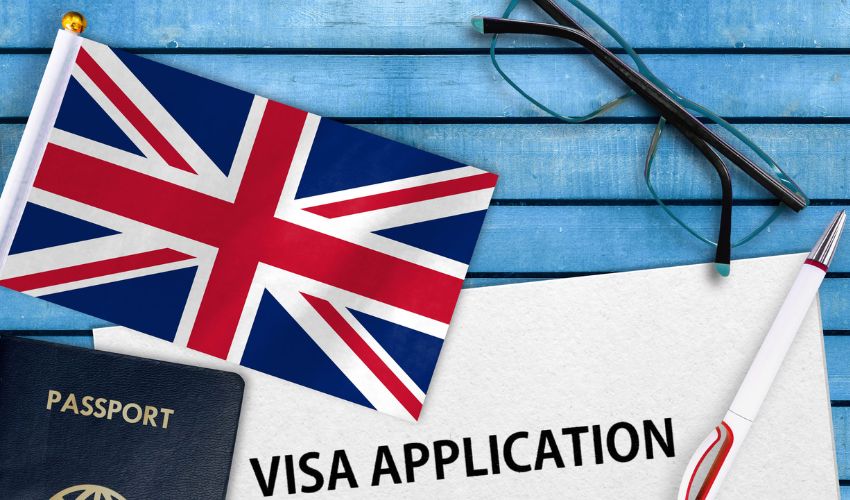In a recent development, the Legal Aid Society (LAS), a Karachi-based non-profit organisation, hosted a launch event for the Gender-Based Violence Guidelines, a crucial initiative aimed at equipping healthcare providers with tools to combat sexual and gender-based violence (SGBV).
Supported by the United Nations Population Fund (UNFPA), these guidelines serve as a valuable resource for healthcare professionals in Sindh. These guidelines were developed following a series of health sector training sessions conducted by LAS in three major cities of Sindh: Karachi, Matiari, and Qambar Shahdadkot.
These training sessions focused on educating healthcare providers about effective identification, response, and referral systems for victims of SGBV, emphasising high-quality screening and support mechanisms.
The event brought together key stakeholders from the criminal justice system who shared their insights into the critical role of the health sector in identifying, responding to, and referring SGBV cases. Healthcare providers are often the first point of contact for survivors, making their role in the fight against SGBV pivotal.
Barrister Haya Emaan Zahid, the Chief Executive Officer of LAS, inaugurated the event and articulated LAS's vision centred on safeguarding fundamental rights, promoting access to justice, and connecting individuals with the justice system. She also highlighted LAS's efforts to empower vulnerable populations to access protection and rights, including gender and child security. She shed light on the ongoing global humanitarian crisis, drawing attention to the atrocities in Palestine.
Bayramgul Garabayeva, the Head of Office for UNFPA in Sindh, underscored UNFPA's commitment to enhancing policies and frameworks to prevent SGBV, along with capacity-building for service providers supporting survivors of SGBV.
A panel discussion followed, featuring prominent figures such as Dr Ayesha Mehnaz, Chairperson of Konpal Child Abuse Prevention Society; Professor Fehmina Arif from the Department of Paediatrics at Dow University of Health Sciences; Dr Beenish Hameed, Consultant and Supervisor in Emergency Medicine at SMBBIT; Dr. Asha Bedar, a Clinical Psychologist; Dr Shazia Jabbar, Consultant Gynaecologist at Dow University of Health Sciences; and Dr. Ishtiaq Ahmed, Incharge of the Sindh Forensic DNA Lab at ICCBS.
Dr Summaiya Syed, Chief Police Surgeon Karachi, expertly facilitated the panel discussion. She provided a comprehensive overview of the Anti-Rape (Investigation and Trial) Act 2021 and delved into the existing state of the healthcare sector's approach to sexual and gender-based violence. Her discussion prominently emphasised how the introduced guidelines would play a pivotal role in enhancing this response.
Health Minister Sindh, Dr Saad Khalid Niaz, delivered the keynote address and condemned the recent 'Ranipur case', expressing strong condemnation of child sexual abuse. He emphasised the inhumane nature of sexual and gender-based violence (SGBV) and called for collective efforts to prevent such heinous criminal acts. Dr. Niaz's statement underscores the need for heightened societal awareness and collaborative action to combat SGBV and protect the rights and safety of children.
Former Justice Khilji Arif Hussain extended a vote of thanks during his closing speech, highlighting that this event marks just the beginning of collective efforts in the fight against SGBV. The progress made here will lead to the next phase of this critical endeavour.



























